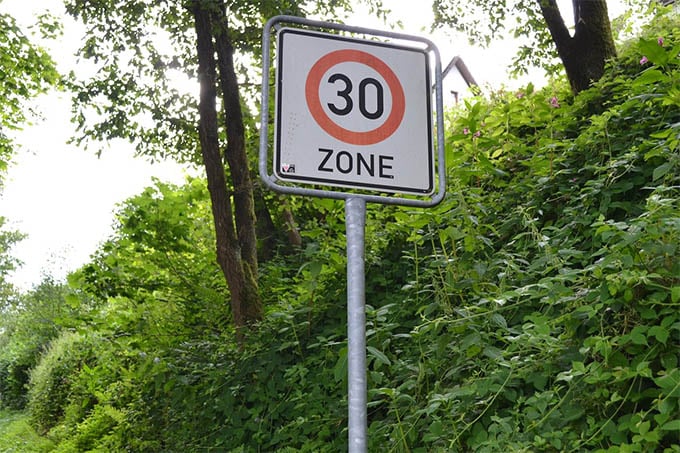The department of public works, at the behest of the road safety council, has provided a study to reduce speed limits from 50km/h to 30km/h in certain urban areas, it emerged on Wednesday.
The measure aims to reduce fatal collisions and emissions, as well as promote sustainable mobility. The public works department’s recommendations are ready to be submitted to Transport Minister Alexis Vafeades, as reported in Philenews.
The speed limit reduction will affect mainly highly trafficked roads also used by pedestrians, where risks are deemed as increased at speeds exceeding 50km/h.
An additional criterion will be whether a road or an intersection is a high accident spot.
Reducing the speed limit within cities and city centres is supported by the police traffic department, as it has been proven that every 10 per cent reduction in the speed limit achieves a 20 per cent reduction in road accidents.
In Cyprus 60 per cent of road accidents occur in residential areas, according to the report.
Several zones flagged for speed reduction are included in the study’s suggestions: in Nicosia, Kaimakli and Aglandjia; three areas in Limassol, including in Mesa Geitonia; and Larnaca’s city centre.
According to the studies, reducing the 50km/h speed limit down to 30km/h would not significantly affect traffic and may even encourage the use of alternative means of transport, such as bicycles and scooters.
Existing legislation for the use of electric scooters, provides they can be ridden on roads where the speed limit is 30km/h; otherwise, they must take bike lanes or specifically designated routes determined by municipalities.
In some central city areas, the speed limit has already been dropped down to 30km/h, while in Ayioi Omologites in Nicosia, the limit on some roads, adjacent to a school, has been lowered to 20km/h.
A decision taken by the EU parliament in 2011 sought to encourage speed reductions and the trend in Europe has been to lower the speed limit to 30km/h throughout urban centres.







Click here to change your cookie preferences